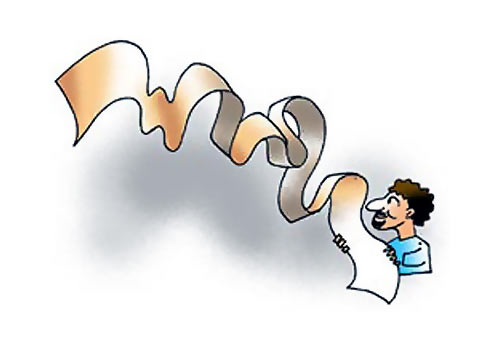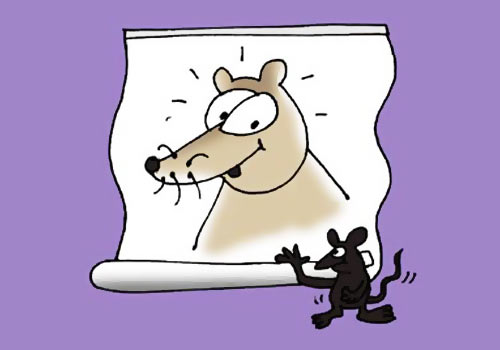
In the second part of a series, Vidhan Chandra, co-founder and director of iSource Services, a recruiting and executive search portal tells you why these mistakes can cost you dearly. Read part one, here
1. Lack of intent
You'd be surprised to know that we get CVs from candidates with no mention of the current role or job function.
Even if it means that you are jobless while applying, it is important to mention the timeline of previous work or academic activity you were involved with.
You must mention your total work experience.
Your application must also state what position you have applied for.
Don't expect the employer to know it all or guess it for you.
We would like to know what suitable profiles you deem yourself to be fit for.
Illustration: Uttam Ghosh
Please click NEXT to continue reading...

It is really a test of patience when you come across a CV that refers the author as:
"Vinod carries 3 years of experience into..."
"Rajinder Singh has extensive expertise in Manufacturing and Production Engineering..."
Unless you are writing an introduction to be read out at some event you are attending, it is appropriate to use a simple 'I'.
In fact, I'd advise you to just refer your achievements in point form -- plain and simple.
Illustration: Dominic Xavier

Any resume that runs more than three pages are a pain to read.
Remember HR personnel/recruiters practically scan through hundreds of CVs in a day.
S/he may not be able to give all the time to read your 'story', so be discreet and brief.
It should not take more than 30 seconds to figure out your experience and core specialties.
Illustration: Uttam Ghosh

Don't force yourself to make an impact.
As said earlier, you can highlight the keywords, but do not overdo it.
Also, avoid attaching your picture along with your CV, unless you are specifically asked to.
Illustration: Uttam Ghosh

Never create and send your resume in any format other than DOC, DOCX or PDF.
The reason I am emphasizing this, is because, we do find candidates sending us their profiles in RTF, HTML and TXT formats.
Avoid it unless you are specifically asked to.
Illustration: Uttam Ghosh

There is just a fine line that differentiates between stating your achievements and exaggeration.
Never overstate, also never fake your achievements.
Candidates are often caught inflating their academic credentials when they are asked to produce the original documents or merit certificates.
At the same time, adding fictitious work experience and roles and responsibilities can also work against you.
An experienced professional who sifts through hundreds of CVs a day can tell an original from fake within seconds.
You may not only lose the opportunity of one interview, but if you are applying to a reputed institute, they may hold it against you and may be even black-list you forever.